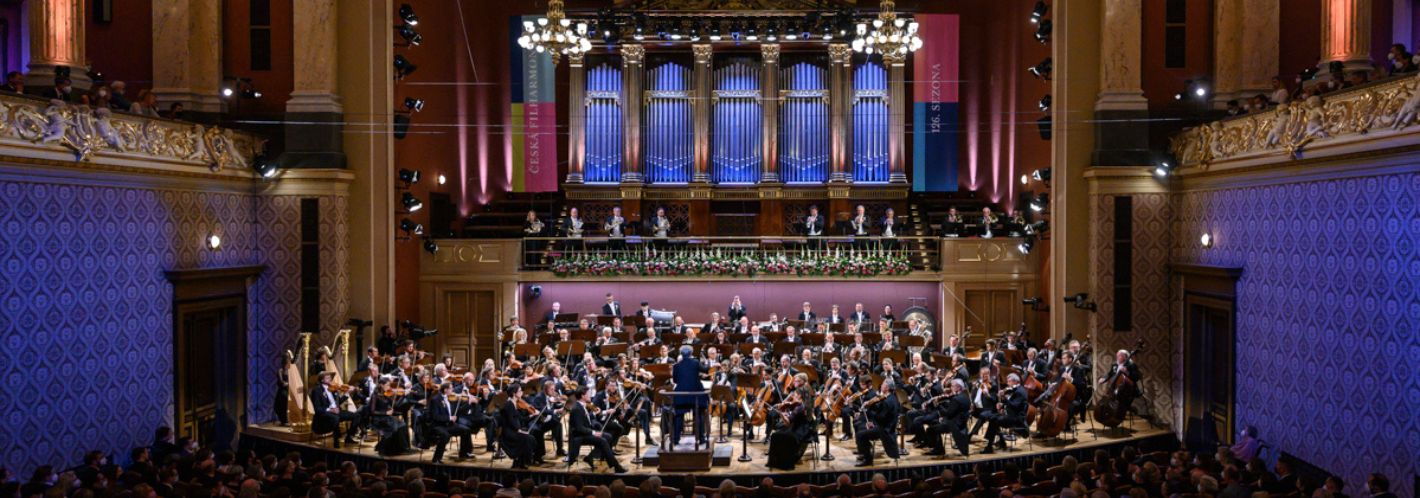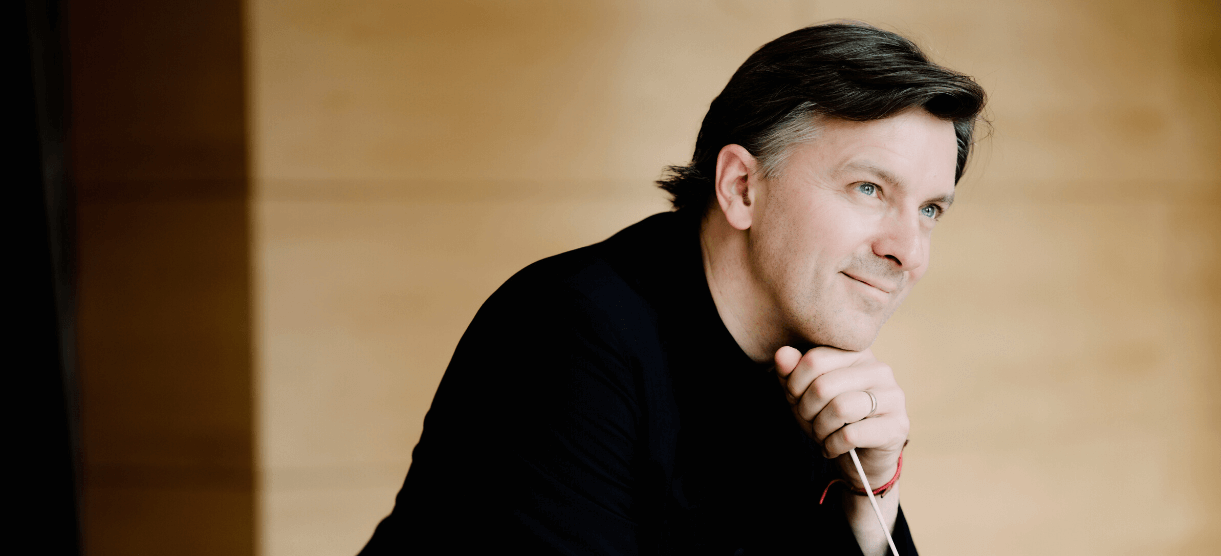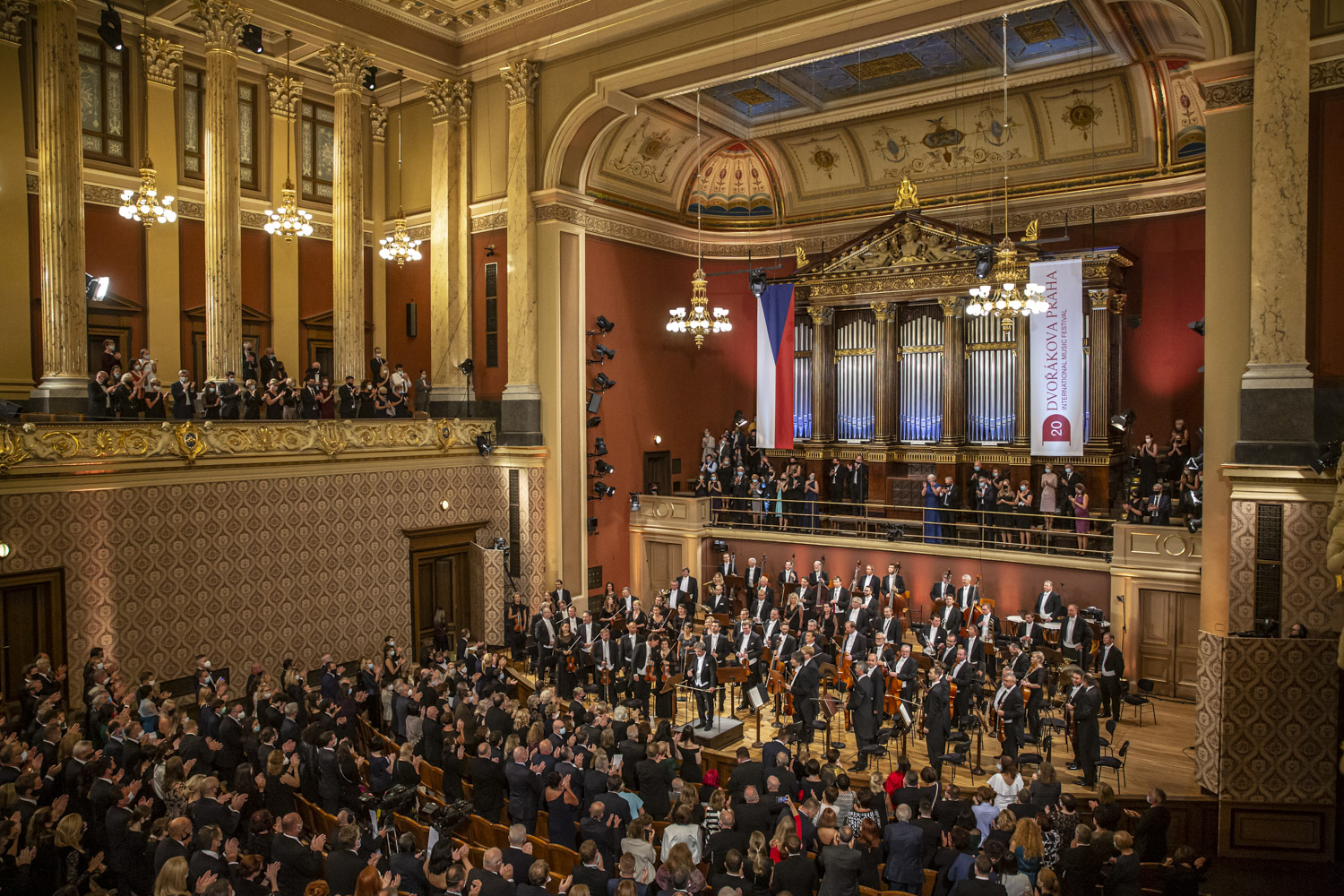
Zdeněk Fibich: The Tempest – Overture, Op. 46
Josef Suk: Fantasy for Violin and Orchestra in G Minor, Op. 24
Sergei Rachmaninoff: Symphony No. 2 in E Minor, Op. 27
“I need not give an account of myself to anyone. Only to my own conscience and to our noble lady music,” the composer Josef Suk once said. His Fantasy in G minor for violin and orchestra will be on the first programme of the Czech Philharmonic at this year’s event. The Dvořák Prague Festival is presenting the music of Dvořák’s son-in-law with growing frequency, and this work for violin and orchestra shows Suk as a dramatic composer of music full of surprising turns and inner turmoil.
A very rarely played work by Suk’s and Dvořák’s contemporary Zdeněk Fibich has not appeared previously on our festival programmes, so we are repaying this debt with a performance of the overture to his opera The Tempest. This adds yet another piece to the mosaic of Czech music of the latter half of the nineteenth century and the first decade of the twentieth. The performance of the Symphony No. 2 in E minor by Suk’s contemporary Sergei Rachmaninoff on the second half of the concert highlights the fact that the two Czech composers deserve to rank as equals to the greatest of history’s musicians. The concert has been entrusted to Tomáš Netopil, a regular guest conductor of the Czech Philharmonic who is also a welcome guest at the Dvořák Prague Festival. The violinist Christian Tetzlaff, the soloist in Suk’s Fantasy, returns to the Dvořák Prague Festival after having appeared with the pianist Ivo Kahánek in 2015. He is also a laureate of the competition Concertino Praga, which he won at the beginning of his successful career.
Gramophone’s 2024 ‘Orchestra of the Year’, the Czech Philharmonic gave its first concert – an all-Dvořák programme conducted by the composer himself – in the famed Rudolfinum Hall on 4 January 1896. The Orchestra is acknowledged for its definitive interpretations of Czech composers and recognised for its special relationship with the music of Brahms, Tchaikovsky, and Mahler, who conducted the world première of his Symphony No. 7 with the Orchestra in 1908. It is currently recording the complete cycle of Mahler symphonies with Chief Conductor and Music Director Semyon Bychkov for Pentatone.
The Czech Philharmonic’s extraordinary and proud history reflects both its location at the very heart of Europe and the Czech Republic’s turbulent political history, for which Smetana’s Má vlast has become a potent symbol. 2024 was the Year of Czech Music, a major celebration launched on the bicentenary of Smetana’s birth and held across the Czech Republic every ten years. The Czech Philharmonic marked Smetana’s bicentenary with a series of concerts at the Smetana Litomyšl Festival, including a rare concert performance of his opera Libuše, conducted by Principal Guest Conductor Jakub Hrůša.
The contribution of the Czech Philharmonic and Semyon Bychkov to the Year of Czech Music was the Dvořák Festival, a combined performance of three overtures, instrumental concerts, and the last three symphonies of Antonín Dvořák, both in Prague and on tour in South Korea, Japan, Spain, Austria, Germany, Belgium, and France. The highlight of the Year of Czech Music performed by Semyon Bychkov and the Czech Philharmonic was a series of three concerts in New York's Carnegie Hall.
Alongside the Czech Philharmonic’s Youth Orchestra, Orchestral Academy, and Jiří Bělohlávek Prize for young musicians, a comprehensive education strategy engages with more than 400 schools, bringing students of all ages to the Rudolfinum – some travelling as long as four hours – to hear concerts and participate in workshops. An inspirational music and song programme led by singer Ida Kelarová for the extensive Romani communities within the Czech Republic and Slovakia has helped many socially excluded families to find a voice.
An early champion of the music of Martinů and Janáček, the works of Czech composers – both established and new – remain the lifeblood of the Orchestra. Instigated by Semyon Bychkov at the start of his tenure, nine Czech composers and five international composers – Detlev Glanert, Julian Anderson, Thomas Larcher, Bryce Dessner, and Thierry Escaich – were commissioned to write for the Orchestra.
source: Česká filharmonie

Conductor Tomáš Netopil, known around the world as one of the most talented Czech conductors, is now in his tenth (and final) year as the general music director of the Aalto Musiktheater and the Philharmonie Essen. This season, awaiting him on his home stage will be premieres of Wagner’s Tannhäuser, Kampe’s Dogville, and Mozart’s Marriage of Figaro. He will also be conducting a new production of Janáček’s Káťa Kabanová at the Grand Théâtre de Genève. As the Czech Philharmonic’s principal guest conductor, he will lead concerts at Prague’s Rudofinum and also at the Smetana Litomyšl and Janáček May festivals, of which he is the president. Other highlights from this season include concerts with the Orchestre de la Suisse Romande, the Yomiuri Nippon Symphony Orchestra, the Orchestre National de Montpellier, and the opening concert of the festival Concentus Moraviae, where he will be at the helm of the legendary Concentus Musicus Wien.
He is the artistic director at the successful international Summer Music Academy in Kroměříž, which he founded in 2018. Tomáš Netopil also has strong ties to the Dvořák Prague Festival: he was its artist-in-residence for the 2017 season, and in 2020 and 2021, the Dvořák Prague Youth Philharmonic appeared at the festival under his baton in cooperation with his Kroměříž academy.
In addition to productions at the Aalto Musiktheater in Essen, Tomáš Netopil has led many important opera performances at the Saxon State Opera in Dresden (La clemenza di Tito, Rusalka, The Bartered Bride, The Cunning Little Vixen, Halévy’s La Juive, and Busoni’s Doktor Faust), the Vienna State Opera (Idomeneo, Die Freischütz, Leonore), the Dutch National Opera (Jenůfa), and the Grand Théâtre de Genève (The Makropulos Affair).
Tomáš Netopil has appeared on concert stages with many renowned orchestras. Besides the Essen and the Czech Philharmonic, these include the Orchestre National de France, the Vienna Symphony Orchestra, the Orchestre Philharmonique de Monte Carlo, the BBC Symphony Orchestra, Sinfonia Varsovia, Zurich’s Tonhalle-Orchester, the Orchestre de Paris, the London Philharmonic Orchestra, the Netherlands Radio Philharmonic, the RAI National Symphony Orchestra in Torino, and the Prague Symphony Orchestra.
Tomáš Netopil studied violin at the P. J. Vejvanovský Conservatoire in Kroměříž and conducting at the Academy of Performing Arts. He also continued his studies at the Royal Academy in Stockholm under Professor Jorma Panula and at the Aspen Summer Music School in the USA, where he won the top prize of the American Conducting Academy in 2003 and 2004. He returns to Aspen regularly as a guest conductor. In 2002, he won the Sir George Solti Conducting Competition in Frankfurt am Main.
Tomáš Netopil has made highly acclaimed CDs under the Supraphon, OehmsClassics, Radioservis, Dynamics labels.
Source: HarrisonParrott

The outstanding German violinist Christian Tetzlaff comes from a musical family; he himself began playing violin at the age of six. He first attracted significant attention as a soloist in 1988, with a superb performance of Schoenberg’s Violin Concerto with the Cleveland Orchestra. The very next year he made his New York debut in a solo recital. Tetzlaff’s approach to interpretation is characterised by his dedication to the musical score while also striving to maximise his communication of the composer’s message to listeners. Furthermore, he often turns his attention to forgotten works, such as the Violin Concerto in D minor by Joseph Joachim, a leading virtuoso of the 19th century. He has more than 40 CDs to his credit, a number of which have earned prestigious awards, including the Diapason d’Or and the MIDEM Classical Award. He founded the Tetzlaff Quartet in 1994 with his sister, cellist Tanja Tetzlaff, violinist Elisabeth Kufferath, and violist Hanna Weinmeister. In its quarter century of existence, the ensemble has earned great international renown with both critics and the public.
The Rudolfinum is one of the most important Neo-Renaissance edifices in the Czech Republic. In its conception as a multi-purpose cultural centre it was quite unique in Europe at the time of its construction. Based on a joint design by two outstanding Czech architects, Josef Zítek and Josef Schultz, a magnificent building was erected serving for concerts, as a gallery, and as a museum. The grand opening on 7 February 1885 was attended by Crown Prince Rudolph of Austria, in whose honour the structure was named. In 1896 the very first concert of the Czech Philharmonic Orchestra took place in the Rudolfinum's main concert hall, under the baton of the composer Antonín Dvořák whose name was later bestowed on the hall.
